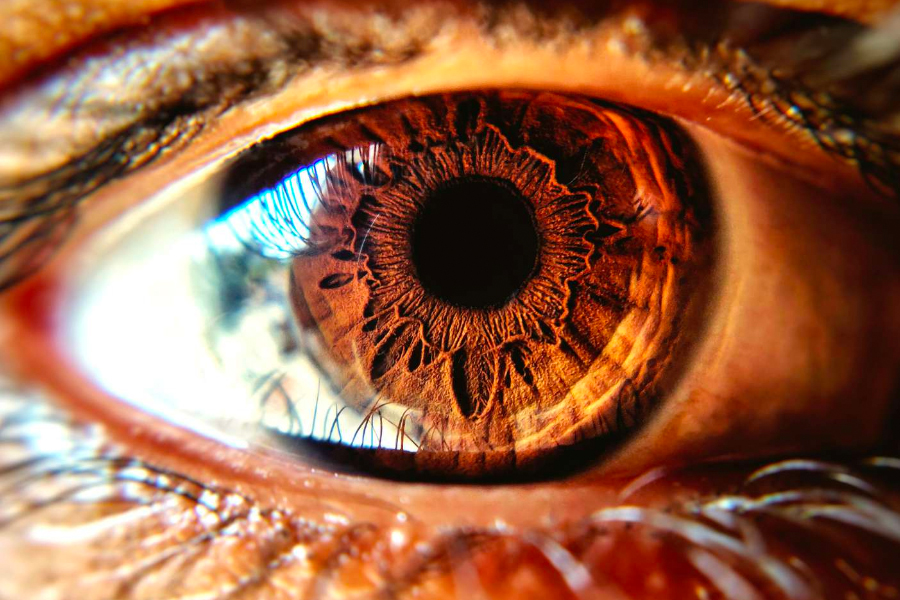Humans are able to see the world with their eyes. Eyes are indeed the window to the soul. This shows that eyes are not only able to see what is physical such as a view or a scene of a place but also help to understand a persons’ emotions just by looking into his or her eyes. People often think that the eyes need no careful care unless their eyes are faced with some disease or disorder. The ability to see the world is indeed a blessing in disguise. In this DoctorOnCall’s article, we will be learning about aphakia and can a person with aphakia see.
Aphakia is a condition where the lens of the eyes is missing. This can be in one or both eyes. Aphakia can be characterised by the lens completely missing or positioned abnormally. The eye lens is a clear structure with an oval-shaped that is present behind the coloured part of the eyes (iris) and pupil (round opening in centre of iris). Function of the lens is to focus light that enters the eyes and make sure the light falls on the retina. The lens is always in position through a fibrous ligament that holds the lens in place. Lens work by changing shape to focus the light.
Aphakia is certainly not a normal condition. There can be many reasons why a person has aphakia. Common reasons include cataract surgery, direct trauma to the lens or babies born without lenses or lenses that are detached or abnormal at birth. Congenital conditions such as a baby infected with rubella while still in the womb can lead to aphakia. There are 2 types of congenital aphakia. In primary type, there is no lens at all as it never develops due to genetic mutation or developmental issue whereas in secondary type, the lens does develop but not fully such as from detached lens. This means there is a lens fragment but not a functional lens.
Symptoms of aphakia are trouble seeing close-up things (farsightedness) and even trouble seeing far away objects, fading colours and problems focusing objects as it moves closer or farther away (lose accommodate ability). Other symptoms include difficulty focusing and light sensitivity. Aphakia also cause iris to appear jiggly (iridodonesis). This can be seen when a person moves their eyes. Thus, to answer “can an aphakic person see’ ‘, yes, they can but it is very blurry and not clear. This means that an aphakic person does see and not to be simplified as blind. In fact, an aphakic person may see ultraviolet (UV) lights which is not supposed to happen in a normal eye vision. In patients with only one eye affected by aphakia, they tend to use the normal eyes to view objects and leave the eyes with aphakia not fully utilised. This led to amblyopia or lazy eyes.
Aphakia is diagnosed through symptoms of aphakia and complete eye exam. Examination eye tools such as slit lamps are used to examine the eyes. In some cases, aphakia can be found during ultrasounds during prenatal visits. Since there are many other eye conditions that may cause symptoms similar to aphakia, doctors will eliminate this through thorough examination on patients. Diseases such as glaucoma may be similar with aphakia as the symptoms are almost the same but with glaucoma, there is indeed a rise of pressure inside the eye with sudden headaches.
Treatment of aphakia depends on the cause of the aphakia. In babies and children with aphakia, they need to get immediate treatment to prevent amblyopia. The danger of amblyopia is the brain loses connection to the eyes and causes vision of the eyes to be “turned off”. Aphakia is usually treated with surgery of replacing the damaged, detached or missing lens with an artificial intraocular lens (IOL lens). Special contact lenses are recommended for young children that are too young for IOL replacement lenses. This is worn for a month or more without changing. Glasses work best for both eyes with aphakia but it was rarely used in the past as it can be very thick and heavy for children. Plus, contact lenses are much more convenient.
It is important to treat aphakia as aphakia that are left untreated can lead to complications. Complications besides amblyopia such as aphakic glaucoma that may damage the optic nerve. Aphakia may be associated with retinal detachment especially after an eye injury. Retinal detachment can lead to permanent blindness when not treated immediately.
In general, people with aphakia do have good outcomes when treated properly. Most people recover from aphakia with no complications. Treatments either surgery or non-surgery depends on the severity of the aphakia. Failure to make good changes in a child with aphakia in a timely manner may result in permanent visual loss. Aphakia is treatable. Patients with aphakia tend to have farsightedness. If you have any eye symptoms that affect your ability to see and begin to interfere with your life, you should get checked by doctors immediately.







